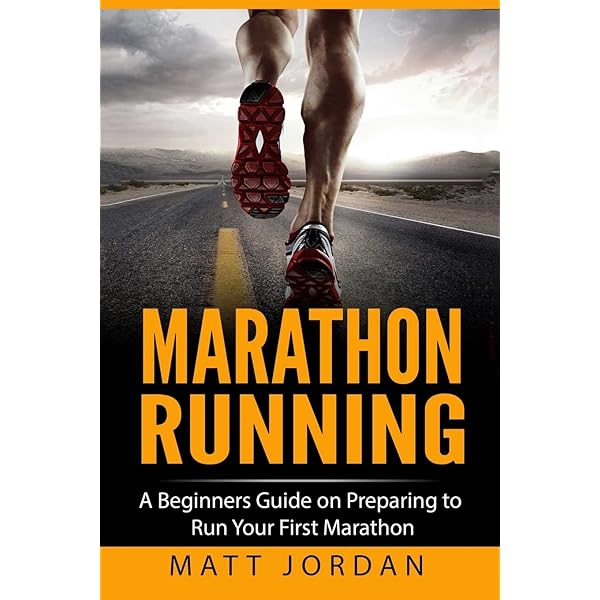Can I Lift Weights And Run a Marathon?: Balancing Strength and Endurance
Yes, you can lift weights and run a marathon. Combining both activities can improve overall fitness and performance.
Weightlifting can enhance strength and power, which can benefit marathon running by preventing injuries and improving running efficiency. Running a marathon requires endurance and cardiovascular fitness, and incorporating weightlifting into your training routine can help you build the necessary strength to support your endurance training.
However, it’s important to balance both activities to prevent overtraining and allow for adequate recovery. In this blog, we will explore the benefits and considerations of combining weightlifting and marathon training, as well as provide tips for effectively integrating both into your fitness regimen.
Credit: www.quora.com
Benefits Of Combining Weightlifting And Marathon Running
- Improved Overall Fitness: Combining weightlifting and marathon running in your workout routine can help to improve your overall fitness levels. Weightlifting can help to build muscle strength and endurance, while running can help to improve cardiovascular health and endurance.
- Enhanced Performance: Weightlifting can help to improve your running performance by strengthening the muscles used in running, such as the quads, hamstrings, and calves. Running can also help to improve weightlifting performance by building endurance and improving cardiovascular health.
- Injury Prevention: Incorporating weightlifting into your workout routine can help to prevent injuries while marathon running. Weightlifting can help to strengthen the muscles and joints used in running, reducing the risk of injury. Additionally, weightlifting can help to improve overall body balance and stability, which can also reduce the risk of injury.
Training Strategies For Strength And Endurance
Can I Lift Weights And Run a Marathon?
When it comes to training strategies for strength and endurance, it’s essential to consider a periodization approach. This involves alternating between phases of heavy lifting and marathon-specific training to optimize performance.
Cross-training techniques such as cycling, swimming, and yoga can help prevent overuse injuries and improve overall athletic performance. Incorporating these activities into your routine can also provide mental refreshment from the demands of weightlifting and running.
Recovery is of utmost importance when balancing weightlifting and marathon training. Adequate rest, nutrition, and sleep are crucial for muscle repair and growth, as well as injury prevention. Implementing proper recovery strategies can significantly impact your ability to excel in both pursuits.
Nutritional Considerations For Dual Training
When training for both weightlifting and marathon running, it’s crucial to prioritize balanced nutrition. Focus on consuming adequate amounts of protein, carbohydrates, and healthy fats to support your body’s diverse energy needs. Hydration is equally important, so make sure to drink enough water and consider adding electrolytes for prolonged workouts. Additionally, supplementation can play a role in supporting your training, such as incorporating protein powders, BCAAs, and omega-3 fatty acids. By paying attention to these nutritional aspects, you can optimize your performance and recovery as you pursue both weightlifting and marathon running.
Common Challenges And How To Overcome Them
Combining weight lifting and marathon running can be challenging, but with proper time management, fatigue management, and progress monitoring, it can be achieved. To manage time effectively, create a training schedule that includes both weight lifting and running. Start with shorter distances and lighter weights, gradually increasing the intensity and duration as your body adapts. To manage fatigue, make sure to get enough rest, eat a balanced diet, and stretch before and after workouts. Monitoring progress can help you stay motivated and adjust your training plan accordingly.
| Time Management | Fatigue Management | Monitoring Progress |
|---|---|---|
| Create a training schedule | Get enough rest | Track distance and time |
| Include both weight lifting and running | Eat a balanced diet | Measure weight lifting progress |
| Start with shorter distances and lighter weights | Stretch before and after workouts | Adjust training plan accordingly |
Success Stories Of Athletes Who Combine Weightlifting And Marathon Running
Combining weightlifting and marathon running is a challenging yet rewarding endeavor. Many athletes have shared personal testimonials highlighting their success stories. By incorporating both activities into their training routines, these individuals have achieved remarkable achievements and records. The key lies in finding a balance between building strength through weightlifting and enhancing endurance through marathon running. It is inspiring to see how dedication and perseverance can lead to outstanding results in both disciplines.

Credit: tempo.fit

Credit: www.youtube.com
Frequently Asked Questions
Can I Weight Lift And Run A Marathon?
Yes, you can weight lift and run a marathon. Incorporating both activities can improve overall fitness and performance.
Can You Run Long Distance And Lift Weights?
Yes, you can do both long distance running and weightlifting to improve endurance and strength simultaneously.
Can You Bodybuild And Run A Marathon?
Yes, it’s possible to bodybuild and run a marathon with proper training and balance in workouts.
Is It Ok To Run And Lift Weights?
Yes, it’s okay to run and lift weights. This combination can improve overall fitness and strength. Just make sure to warm up, vary your workouts, and listen to your body.
Conclusion
Incorporating weightlifting with marathon training can enhance overall fitness and performance. Balancing both activities requires proper planning and adequate recovery. By focusing on strength, endurance, and flexibility, you can improve your running capabilities while preventing injuries. Consult with a fitness professional for a personalized approach.





